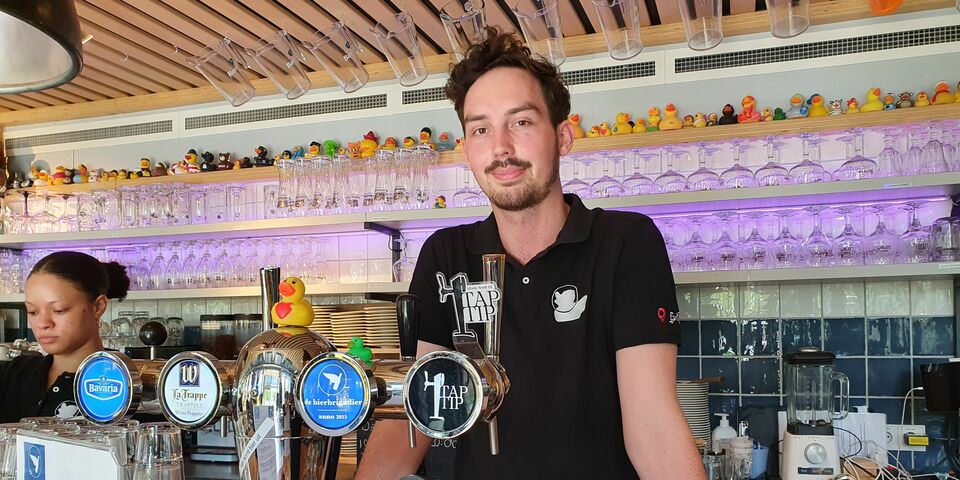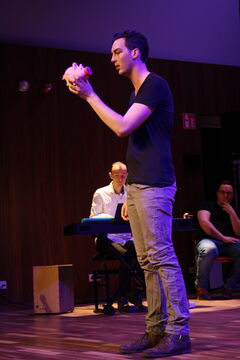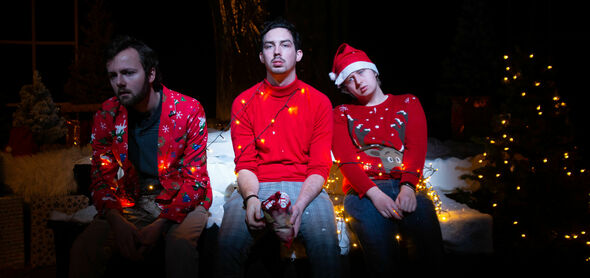“Action is the antidote to powerlessness”
Sulking around feeling powerless about all the misery in the world; Maas van Apeldoorn is not interested in that. The master’s student in Computer Science & Engineering would rather go on a 20-kilometer late-night hike to raise money for refugees. He believes that every little bit helps and thinks that more students could relieve their melancholy mood if they would roll up their sleeves and take action.
Engineering student Maas feels a strong sense of social responsibility and he has wide ranging interests: he does theater at Doppio, ballroom dancing at Footloose and he works at Hubble. He wants to send his fellow students a powerful message, which is why he reached out to Cursor. “In these times of war in Ukraine and parts of Africa, the climate crisis and all the other troubles in the world, I notice that a feeling of powerlessness is very much present among students, myself included.”
He knows that he does not have much power on his own. “As a student, I can’t donate enough money, I can’t build a machine that saves the climate or call Putin to tell him how to behave”, he realizes. “We’re exposed to so much misery because of globalization and through social media that it’s easy to lose hope. But as soon as you throw in the towel, you’re left with nothing at all, I reckon. That’s why I think charitable initiatives are great opportunities to make a difference.”
Walking
Every year, the Netherlands Refugee Foundation organizes the Night of the Refugee and on June 18, Maas and his mother Han Verhoeven are going to participate in the 20-kilometer walk. The sponsorship money they raise – they have already collected over a thousand euros – will be used to provide emergency aid to refugees in conflict areas. For example, shelter and medical care in Ukraine. It doesn’t make a world of difference, but it can make life a bit more bearable for at least a few people. For just 16 euros, someone can help a malnourished child get back on their feet, for example.”
From an early age, Maas was extensively confronted with world inequality. “Because of my parents’ development work, our close-knit family has lived in Wajir, Kenya, near the Somali border, three separate times in my life. I was 6, 12 and 15 years old and the poverty there made an awful impression.”
Cleaning up
It feels nice to be able to do something. “When the riots broke out in Eindhoven in early 2021 because of the Covid-19 measures, I was at home, bewildered. Is that happening here? The next day, I went walking around the city with a garbage bag to clean up trash. Even though it was something very small, it made me feel better. I posted it on Instagram in hopes that others would start doing something good as well.”
Does Maas feel like the TU/e is doing enough for students who feel powerless? “TINT does tackle these kinds of issues, but I think the organization is not very well-known among students. I don’t think the feeling of powerlessness was ever mentioned in the emails we received from the Executive Board concerning the Covid-19 crisis. At least, I don’t remember it. I would have liked that... that recognition makes you feel less alone and makes it easier to talk about.”
Markthal
Maas would also like to see more charitable initiatives on campus. “It’s not that often that something really impactful happens and when it does, it’s rarely promoted across the entire university. Because of this, it attracts less attention. For many people – myself included – it’s difficult to come up with an initiative on their own. To be honest, participating in the Night of the Refugee was also a suggestion from my mother. The other day at the Markthal, I saw that some members of the Scala associations were hosting a kind of bake sale with Ukrainian food. Seeing more initiatives like this gives us hope. You can do something to make a difference – and apparently, other people are doing the same.”




Discussion